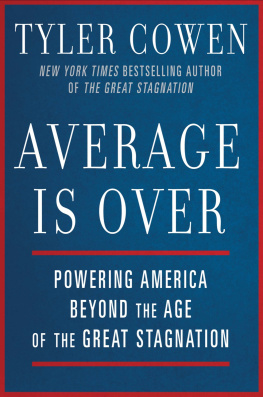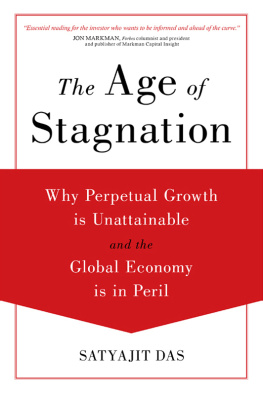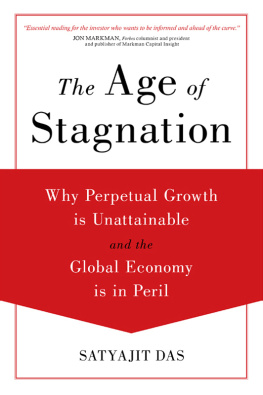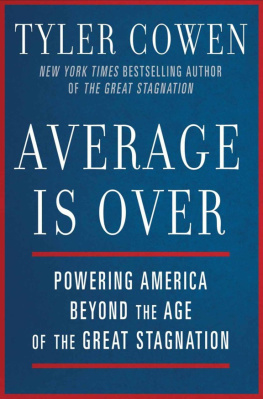Cowen - Average is over: powering America beyond the age of the great stagnation
Here you can read online Cowen - Average is over: powering America beyond the age of the great stagnation full text of the book (entire story) in english for free. Download pdf and epub, get meaning, cover and reviews about this ebook. City: United States, year: 2014;2013, publisher: Penguin Group US;Plume, genre: Politics. Description of the work, (preface) as well as reviews are available. Best literature library LitArk.com created for fans of good reading and offers a wide selection of genres:
Romance novel
Science fiction
Adventure
Detective
Science
History
Home and family
Prose
Art
Politics
Computer
Non-fiction
Religion
Business
Children
Humor
Choose a favorite category and find really read worthwhile books. Enjoy immersion in the world of imagination, feel the emotions of the characters or learn something new for yourself, make an fascinating discovery.
Average is over: powering America beyond the age of the great stagnation: summary, description and annotation
We offer to read an annotation, description, summary or preface (depends on what the author of the book "Average is over: powering America beyond the age of the great stagnation" wrote himself). If you haven't found the necessary information about the book — write in the comments, we will try to find it.
Cowen: author's other books
Who wrote Average is over: powering America beyond the age of the great stagnation? Find out the surname, the name of the author of the book and a list of all author's works by series.
Average is over: powering America beyond the age of the great stagnation — read online for free the complete book (whole text) full work
Below is the text of the book, divided by pages. System saving the place of the last page read, allows you to conveniently read the book "Average is over: powering America beyond the age of the great stagnation" online for free, without having to search again every time where you left off. Put a bookmark, and you can go to the page where you finished reading at any time.
Font size:
Interval:
Bookmark:

ALSO BY TYLER COWEN
An Economist Gets Lunch
The Great Stagnation
The Age of the Infovore
Discover Your Inner Economist
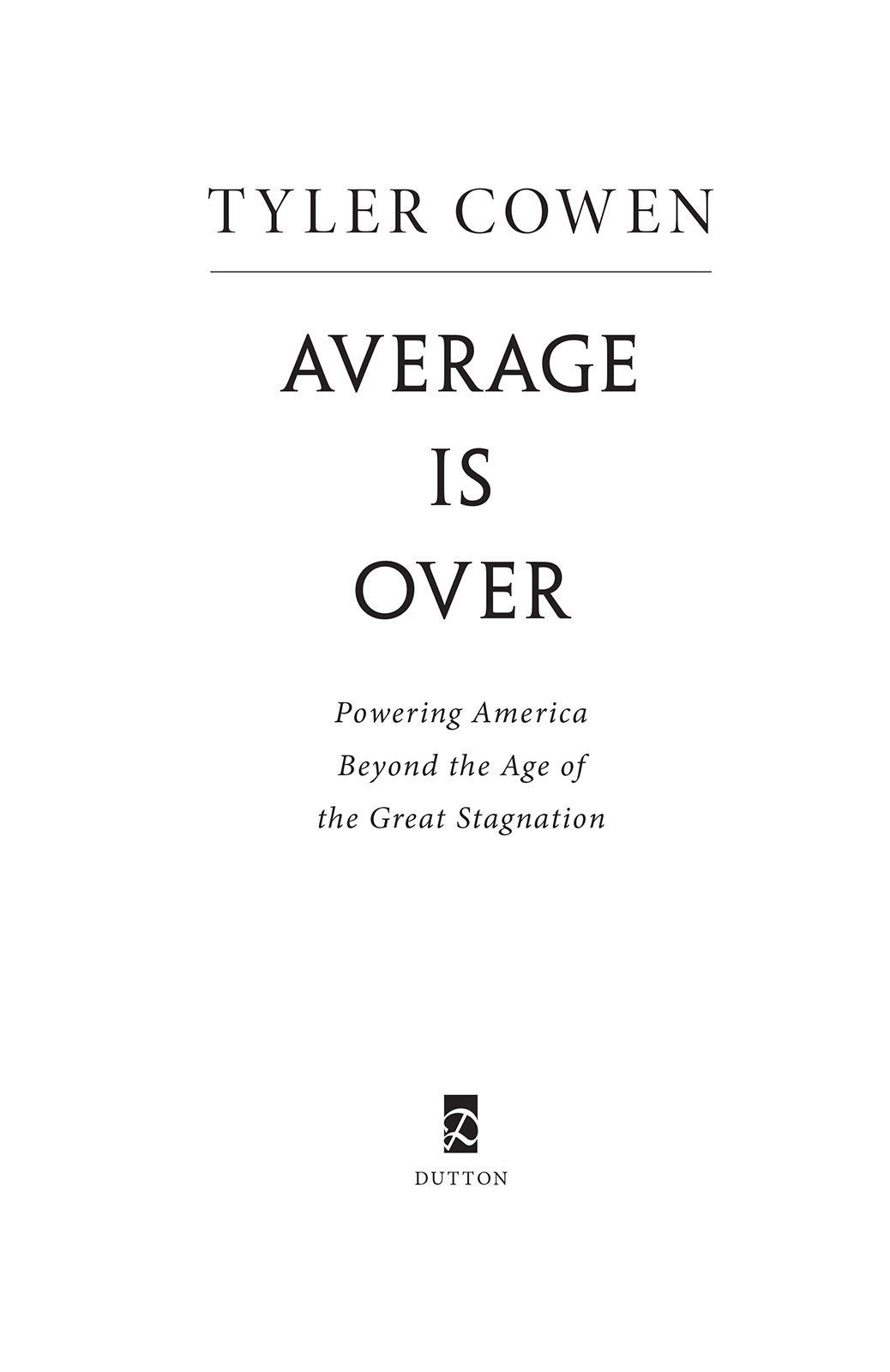
DUTTON
Published by the Penguin Group
Penguin Group (USA) Inc., 375 Hudson Street,
New York, New York 10014, USA

USA | Canada | UK | Ireland | Australia | New Zealand | India | South Africa | China
Penguin Books Ltd, Registered Offices: 80 Strand, London WC2R 0RL, England
For more information about the Penguin Group visit penguin.com.
Copyright 2013 by Tyler Cowen
All rights reserved. No part of this book may be reproduced, scanned, or distributed in any printed or electronic form without permission. Please do not participate in or encourage piracy of copyrighted materials in violation of the authors rights. Purchase only authorized editions.
 REGISTERED TRADEMARKMARCA REGISTRADA
REGISTERED TRADEMARKMARCA REGISTRADA
LIBRARY OF CONGRESS CATALOGING-IN-PUBLICATION DATA
Cowen, Tyler.
Average is over : powering America beyond the age of the great stagnation / Tyler Cowen.
pages cm
Includes bibliographical references and index.
ISBN 978-0-698-13816-2
1. Economic forecastingUnited States. 2. United StatesEconomic conditions2009- 3. United StatesEconomic policy2009- I. Title.
HC106.84.C69 2013
330.973dc23 2013016255
While the author has made every effort to provide accurate telephone numbers, Internet addresses, and other contact information at the time of publication, neither the publisher nor the author assumes any responsibility for errors or for changes that occur after publication. Further, the publisher does not have any control over and does not assume any responsibility for author or third-party websites or their content.
To Natasha
I would bring a hammer.
Chess grandmaster Jan Hein Donner, when asked what strategy he would use against a computer
The title of this book was inspired by a series of Thomas Friedmans columns in The New York Times . Friedman expanded on this idea in a chapter in his book with Michael Mandelbaum, That Used to Be Us , entitled Average Is Over. I owe a debt of gratitude to their work and thinking on this very important subject. I also recommend to the reader Erik Brynjolfsson and Andrew McAfees Race Against the Machine , a book that came out while I was doing the research and writing on this one. I have benefited considerably from reading their work and from conversations with them.
T his book is far from all good news. Being young and having no job remains stubbornly common. Wages for young people fortunate enough to get a job have gone down. Inflation-adjusted wages for young high school graduates were 11 percent higher in 2000 than they were more than a decade later, and inflation-adjusted wages of young college graduates (four years only) have fallen by more than 5 percent. Unemployment rates for young college graduates have been running for years now in the neighborhood of 10 percent and underemployment rates near 20 percent. The sorry truth is that a lot of young people are facing diminished job opportunities, even several years after the formal end of the recession in 2009, when the economy began to once again expand after a historic contraction.
Many people are seeing the erosion of their economic futures. The labor market troubles of the youngwhich you can observe in many countriesare a harbinger of the new world of work to come. Lacking the right training means being shut out of opportunities like never before.
At the same time, the very top earners, who often have advanced postsecondary degrees, are earning much more. Average is over is the catchphrase of our age, and it is likely to apply all the more to our future.
This maxim will apply to the quality of your job, to your earnings, to where you live, to your education and to the education of your children, and maybe even to your most intimate relationships. Marriages, families, businesses, countries, cities, and regions all will see a greater split in material outcomes; namely, they will either rise to the top in terms of quality or make do with unimpressive results.
These trends stem from some fairly basic and hard-to-reverse forces: the increasing productivity of intelligent machines, economic globalization, and the split of modern economies into both very stagnant sectors and some very dynamic sectors. Consider the iPhone. The iPhone is made on a global scale, and it blends computers, the internet, communications, and artificial intelligence in one blockbuster, game-changing innovation. It reflects so many of the things that our contemporary world is good at, indeed great at. Todays iPhone would have been the most powerful computer in the world as recently as 1985. Yet to cite two contrasting sectors, typical air travel doesnt go faster than it did in 1970, and it is not clear our K12 educational system has much improved.
This imbalance in technological growth will have some surprising implications. For instance, workers more and more will come to be classified into two categories. The key questions will be: Are you good at working with intelligent machines or not? Are your skills a complement to the skills of the computer, or is the computer doing better without you? Worst of all, are you competing against the computer? Are computers helping people in China and India compete against you?
If you and your skills are a complement to the computer, your wage and labor market prospects are likely to be cheery. If your skills do not complement the computer, you may want to address that mismatch. Ever more people are starting to fall on one side of the divide or the other. Thats why average is over.
This insight clarifies many key issues, such as how we should reform our education; where new jobs will come from and why (some) wages might start rising again; which regions will see skyrocketing real estate prices and which will empty out; why some companies will get smarter and smarter, while others just try to ship product out the door; which human beings will earn a lot more and which workers will move to low-rent areas to make ends meet; and how shopping, dating, and meeting negotiations will all change.
What lies ahead of us will be a very surprising time, and it is likely that new technologies already emerging will lead us out of what I called in a previous book the great stagnation. It is true that there has been a persistent slowdown in real economic growth in the Western world and Japan, but this book suggests how that might plausibly change. It is not the new technologies per se; it is how some of us will use them.
The technology of intelligent machines may conjure up science fiction visions of rebellious robots or computers that feel and maybe fall in love or proclaim themselves to be gods. The reality of the progress on the ground is based on an integration of capabilities rather than on any one thing that might be described as artificial intelligence. What is happening is an increase in the ability of machines to substitute for intelligent human labor, whether we wish to call those machines AI, software, smart phones, superior hardware and storage, better integrated systems, or any combination of the above. This is the wave that will lift you or that will dump you.
Font size:
Interval:
Bookmark:
Similar books «Average is over: powering America beyond the age of the great stagnation»
Look at similar books to Average is over: powering America beyond the age of the great stagnation. We have selected literature similar in name and meaning in the hope of providing readers with more options to find new, interesting, not yet read works.
Discussion, reviews of the book Average is over: powering America beyond the age of the great stagnation and just readers' own opinions. Leave your comments, write what you think about the work, its meaning or the main characters. Specify what exactly you liked and what you didn't like, and why you think so.

